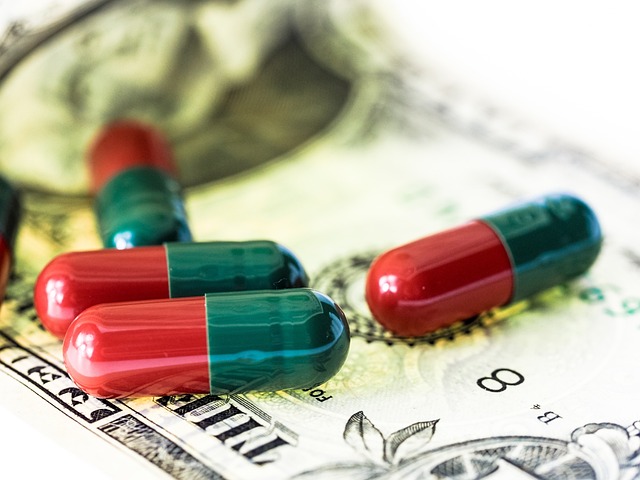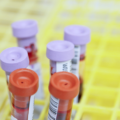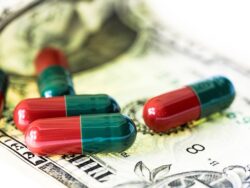If you haven’t read Chandler Marrs’ article on the safety of medications, take a moment to do so and understand that no medication is, as Marrs puts it, “perfectly safe.” I’m here to reaffirm this harsh pill to swallow (pun intended) through the telling of my own experience and the showcasing of research that reveals just how much sway Big Pharma has over the safety of medications.
I was 20 years old when I decided to take my doctor’s advice and go on hormonal birth control to help regulate my periods. I remember my mother, a registered nurse who worked in a local hospital, voicing her concerns about the oral contraceptive. At the time, she was seeing quite a few girls my age come in with clotting complications related to the pill.
Thinking I knew what was best for me, I ignored her advice to stay off of the medication. I was comforted in knowing that almost every single one of my close friends was taking some form of birth control, and they were fine. I’d be fine too.
I couldn’t have been more wrong.
Two months later, I was in the emergency room with a bilateral pulmonary embolism or multiple blood clots in my lungs. What I originally thought was a relatively safe medication turned out to be a life-threatening decision. Suddenly gone forever was my notion that any medications I was prescribed would be taken without risk.
After six months on blood thinners to dissolve the clots, I went back to living my life normally, both clot and birth control-free.
Fast forward four years, and I’m reading news stories discussing the thousands of lawsuits that have been filed against the makers of Xarelto, the same blood thinner I was prescribed to help me recover from my embolism. Although I suffered no complications from the medication, I was clearly one of the lucky ones this time. The anticoagulant, which is still on the market today, has no known antidote to reverse its blood-thinning effects, and it has caused so many severe internal bleeding incidents and deaths that legal action has been taken.
Prior to doing any research, my emergency room experience would have made me cast aside the lawsuits as frivolous. There’s a risk with any medication; I can’t deny that I knew the risks before I opted to take birth control. But, didn’t they also know the risks before agreeing to take the blood thinner just like I did?
Drug Company Misconduct
After digging deeper, I realized there was a bigger issue at hand. Drug companies wield an incredible amount of influence within the healthcare sphere that can lead to the approval of medications that should never find their way into patients’ hands in the first place. A major showcase of this influence is seen in Big Pharma’s ability to fund clinical trials.
These clinical trials must be conducted before a drug is approved for market, and funding has typically come from government sources like the National Institutes of Health. But in recent years, more and more industry-funded clinical trials are taking place, meaning that drug companies can sponsor their own medications studies. Critics of this funding allowance point to the fact that the potential for financial gain can lead to a conflict of interests. Companies that have a vested interest in a drug’s approval because it brings a boost in profits could favor positive outcomes while ignoring any negative results.
In the case of Xarelto’s industry-funded clinical trial, it was discovered that Johnson & Johnson withheld information from the FDA that would have highlighted the blood thinner’s inferiority to its comparison warfarin. During the study, 14,000 patients were given an overdose of the traditional anticoagulant due to the use of a faulty blood-testing device, decidedly skewing the results. The design of the company-sponsored trial also limited the distribution of Xarelto to once-a-day dosing that weakened the medication’s effects on participants. With less severe side effects being observed because of the smaller dose, Xarelto’s clinical trial looked favorable for the new experimental drug.
We see a similar story of clinical trial misconduct being told with another blood-thinning medication, Pradaxa. Pradaxa was put through an industry-funded study whose poor trial design led to FDA approval. Critics point out that there was probable cause for bias since it failed to be a double-blind study. Its trial participants were also made up of a demographic of people who were less likely to be prescribed the medication once it hit the market.
The FDA went on to approve the anticoagulant despite the lack of an antidote, but its decision was based on the fact that Pradaxa “wasn’t inferior” to traditional warfarin. This labeling could bring the drug to market, but it wouldn’t be able to give manufacturer Boehringer Ingelheim a leg up in its promotion of the medication. Therefore, the drug company requested that Pradaxa be labeled as “superior” to warfarin in its ability to reduce strokes so that it could make this claim in its marketing materials. The FDA granted the company’s request, decidedly ignoring its original concerns with the blood thinner.
Pradaxa hit the market without an antidote just like Xarelto, and I bet you can guess what happened next. Thousands of patients taking the medication suffered severe internal bleeding complications and even succumbed to the side effects. Like Johnson & Johnson, Boehringer Ingelheim faced a shocking number of Pradaxa lawsuits and created a $650 million settlement fund in 2014 to satisfy the claims.
Profits Over People
We cannot deny that every medication presented to us comes with some sort of risk to our overall health and well-being. I suffered the risks of birth control but miraculously avoided the complications associated with Xarelto. Costs and benefits are just a fact of the pharmaceutical industry.
But, the issue lies in the influence of Big Pharma. If drug companies, who are so clearly focused on boosting their profit margins, can impact clinical trials in such a way that it costs patients more than it benefits them, where do we draw the line?
It will take massive changes in the drug approval process and overall state of healthcare before we can start to see patient lives being placed above profits. But, what we can do is stay informed and educated on the prescriptions we’re taking. There is a lot going on behind the scenes before a medication makes its way into that little orange pill bottle, and it’s up to us as consumers to do our research, look into the possible complications, and voice any and all concerns with our doctors.
We Need Your Help
More people than ever are reading Hormones Matter, a testament to the need for independent voices in health and medicine. We are not funded and accept limited advertising. Unlike many health sites, we don’t force you to purchase a subscription. We believe health information should be open to all. If you read Hormones Matter, and like it, please help support it. Contribute now.
Yes, I would like to support Hormones Matter.
Image by Thomas Breher from Pixabay.
This article was first published in January 2018.













